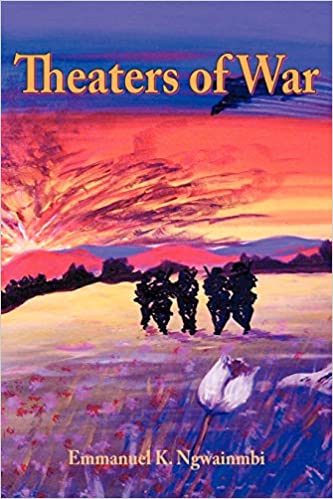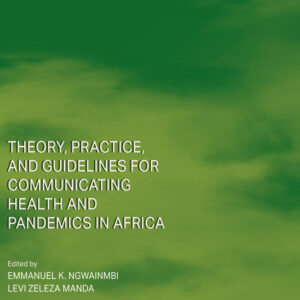This book should be read aloud in juxtaposition to the blare of world news broadcasts, to appreciate Dr. Ngwainmbi’s grasp and illustration of the ironies of our daily acceptance and condoning of the hostile tribalization of modern mankind. The book is a treasure and must be appreciated as a mirror of our times.
– Hank Daidone, Lt. Colonel of US Army (Retired)
Emmanuel K. Ngwainmbi’s verse is crisp yet full of imagistic details. His rhythmic pulse, enforced by love and war and a yearning for peace, and his fragmented references and repetitions have shock value, as well as delicious intellectual content. The mixture of these elements is powerful and appealing.
– Dr. Leonard A. Slade, Jr., State University of New York at Albany
In an era when the war for many in America presents itself as a rolling screen of names at the end of the nightly news, a voice speaks out strongly and clearly. The poet’s anti-war feelings include expressions of goodness – the virtues of life and love. He superbly contrasts everyday life with war-like descriptions, thoughts, and feelings to unmask war’s absurdity. His use of the commonplace makes every war, our war. The life he creates is so real – so ours – it is worth protecting. . . .the reader can’t help but see the hypocrisy in killing for peace’s sake.
– Mary-Ellen Riddle, The Virginia Pilot
Emmanuel K. Ngwainmbi’s verse is crisp yet full of imagistic details. His rhythmic pulse, enforced by love and war and a yearning for peace, and his fragmented references and repetitions have shock value, as well as delicious intellectual content. The mixture of these elements is powerful and appealing.
– Dr. Leonard A. Slade, Jr., State University of New York at Albany
In an era when war for many in America presents itself as a rolling screen of names at the end of the nightly news, a voice speaks out strong and clear. Emmanuel K. Ngwainmbi’s anti-war feelings include expressions of goodness – the virtues of life and love. He superbly contrasts every day life with war-like descriptions, thoughts and feelings to unmask war’s absurdity. His use of the commonplace makes every war, our war. The life he creates is so real – so ours – it is worth protecting. . . .the reader can’t help but see the hypocrisy in killing for peace’s sake.
– Mary-Ellen Riddle, The Virginia Pilot



